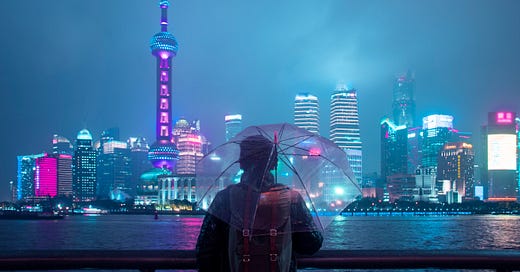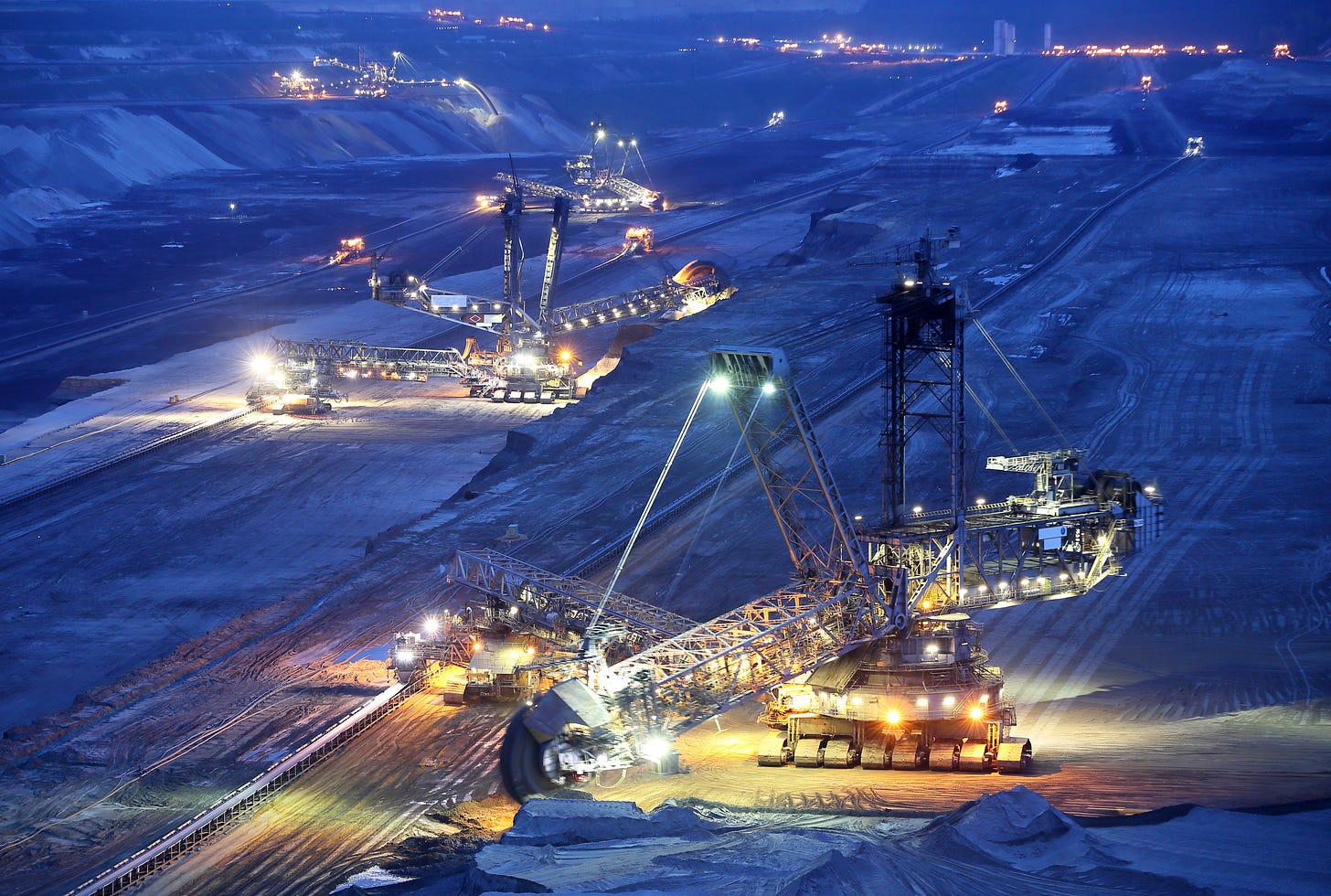Emerging Markets Daily - January 12
Global Growth Slowing: World Bank, China Tech Stocks Rebound, Commodities To Boom for Decades: Blackrock, Red Sea Mining, Turks Jump on Crypto to Flee Lira
The Top 5 Stories Shaping Emerging Markets from Global Media - January 12
Global Growth to Slow Through 2023, Risk of ‘Hard Landing’ in Developing World
World Bank Blog
“Following a strong rebound in 2021, the global economy is entering a pronounced slowdown amid fresh threats from COVID-19 variants and a rise in inflation, debt, and income inequality that could endanger the recovery in emerging and developing economies, according to the World Bank’s latest Global Economic Prospects report. Global growth is expected to decelerate markedly from 5.5 percent in 2021 to 4.1 percent in 2022 and 3.2 percent in 2023 as pent-up demand dissipates and as fiscal and monetary support is unwound across the world.”
“The rapid spread of the Omicron variant indicates that the pandemic will likely continue to disrupt economic activity in the near term. In addition, a notable deceleration in major economies—including the United States and China—will weigh on external demand in emerging and developing economies. At a time when governments in many developing economies lack the policy space to support activity if needed, new COVID-19 outbreaks, persistent supply-chain bottlenecks and inflationary pressures, and elevated financial vulnerabilities in large swaths of the world could increase the risk of a hard landing.”
“The slowdown will coincide with a widening divergence in growth rates between advanced economies and emerging and developing economies. Growth in advanced economies is expected to decline from 5 percent in 2021 to 3.8 percent in 2022 and 2.3 percent in 2023—a pace that, while moderating, will be sufficient to restore output and investment to their pre-pandemic trend in these economies.”
“In emerging and developing economies, however, growth is expected to drop from 6.3 percent in 2021 to 4.6 percent in 2022 and 4.4 percent in 2023. By 2023, all advanced economies will have achieved a full output recovery; yet output in emerging and developing economies will remain 4 percent below its pre-pandemic trend.”
“For many vulnerable economies, the setback is even larger: output of fragile and conflict-affected economies will be 7.5 percent below its pre-pandemic trend, and output of small island states will be 8.5 percent below.” World Bank Blog reports.
Hang Seng Hits Six Week High As China Tech Stocks Rise
South China Morning Post
“Hong Kong stocks rose to the highest level in more than six weeks following the best gain in Chinese technology companies since October. A government report showed inflation in December was slower than expected, creating room for further policy easing.”
“The Hang Seng Index rose 2.8 per cent to 24,402.17 at the close of Wednesday trading, a level not seen since November 25. The Tech Index soared 5 per cent, the biggest advance in three months. China’s Shanghai Composite Index added 0.8 per cent.”
“Alibaba climbed 5.9 per cent while its health unit gained 3.7 per cent. JD.com jumped 11 per cent while Meituan climbed 9.1 per cent and NetEase strengthened 6.8 per cent. The rally has helped recouped US$137 billion of tech value since late Thursday.”
“‘The valuation of tech stocks like JD.com is not demanding,’ said Stanley Chan, research director at Emperor Capital. ‘When market sentiment stabilises, funds that are underweight on such stocks will accumulate more.’” SCMP reports.
Plan for High Commodity Prices for Decades, Blackrock Says
Bloomberg
“Commodities prices may stay high for decades as mining companies struggle to keep up with demand from the energy transition, according to BlackRock Inc.’s Evy Hambro.”
“Raw materials, and shares of some companies that produce them, hit record highs last year as massive global stimulus measures underpinned consumption. At the same time, the switch toward a greener world is creating fresh demand for metals such as copper, lithium and nickel.”
“That trend’s unlikely to change anytime soon, Hambro, BlackRock’s global head of thematic and sector-based investing, told Bloomberg TV on Wednesday. ‘We’ve got decades worth of high rates of investment into infrastructure as the world seeks to decarbonize. That’s a widely held consensual view,’ he said. ‘What we’re likely to see is strong demand that will keep prices at very very good levels for the producers for many years into the future, and that could be decades.’”
“His bullish comments echo those of banks including Goldman Sachs Group Inc., which last week said that a commodities supercycle has the potential to last for a decade. While infrastructure spending will require large amounts of materials like steel and cement, the green revolution will also need more metals including cobalt and nickel for products like batteries.”
“Commodities such as coal, copper and lithium reached records in the past year, helping miners deliver huge profits and dividends. Yet Hambro still sees the mining sector as remaining undervalued, given its importance in providing the materials needed to decarbonize the global economy.”
“‘It seems as though this core element of the transition has been completely ignored by many investors,’ Hambro said. ‘At some point people will realize how essential these businesses are for the transition and capital will flow into them, and that should change the valuations.’” Bloomberg reports.
Barrick CEO Sees Opportunities in Red Sea Mining Off the Coast of Saudi Arabia
Arab News
“The so-called ‘Arabian Shield’ is the perfect place to explore in the quest to find much-needed minerals and metals, a leading mining businessman has said. Speaking at the Future Minerals Forum in Riyadh, Mark Bristow, president and CEO of Barrick, called for more investment in the mining industry from governments across the world.”
“But he warned that investors need to understand that returning to ‘safe jurisdictions’ such as the US and Europe will not provide the supplies needed, particularly in copper.”
“Bristow said that the geological region known as the Arabian Shield — which takes in areas in numerous countries in the Middle East and North Africa including Saudi Arabia, Egypt and Jordan — is the ‘perfect place to explore and it is only being explored superficially.’”
“He added that the world is ‘in a long solid market demand for metals’, and said: ‘Copper is the most challenging in terms of supplier, we have no investor, we have been behind as an industry in investing in the whole mining minerals business.’ The Future Minerals Forum is a special event bringing together ministers, organisations and mining leaders from more than 30 countries.” Arab News reports.
Future Minerals Forum - Riyadh - Special Coverage
For more on the 1st Future Minerals Forum taking place in Riyadh, see the website, which includes live coverage and videos of all public events at:
Also see Arab News’ special coverage. - Future Minerals Forum.
Turks Pile Into Bitcoin and Tether to Escape Plunging Lira
Wall Street Journal
“The Turkish lira has become so volatile that Turks have ditched the local currency for assets with an even riskier reputation: cryptocurrencies.”
“While the lira unraveled against the dollar in the last quarter of 2021, cryptocurrency trading volumes using the lira leapt to an average $1.8 billion a day across three exchanges, according to blockchain analytics firm Chainalysis. Those volumes are still modest compared with the results of a 2019 survey by the Bank for International Settlements that found roughly $71 billion of lira transactions a day, but even so are more than any of the preceding five quarters.”
“Turks are particularly enamored of the stablecoin tether, whose value is pegged to the dollar. The lira this fall became the most traded government-issued currency against tether, outpacing the dollar and the euro, according to data provider CryptoCompare.”
“Turks have long weathered spells of economic turmoil by keeping their money in U.S. dollars, euros or gold. The rise of cryptocurrencies in recent years has presented a new group of instruments in which to store wealth, albeit far more volatile. Since September, the lira has lost 40% of its value against the dollar. Bitcoin initially jumped almost 40% against the dollar by early November, but is now down more than 10%.”
“In Istanbul, Turkey’s largest city and its commercial capital, ads for cryptocurrency exchanges appear on trams, billboards and one of the city’s two airports. Shops selling bitcoin have cropped up in the Grand Bazaar, tucked into alleys near where traders also sell foreign currency and gold.”
“Cryptocurrencies have grown in popularity in Turkey and parts of the developing world where distrust of government economic policies is high. Nigerians use bitcoin for payments after currency devaluations and tight control over access to foreign currencies. El Salvador last year became the first nation to recognize bitcoin as legal tender, after two decades of having its economy tied to the U.S. dollar.” WSJ reports.
“I have not failed. I've just found 10,000 ways that won't work.”
― Thomas A. Edison





